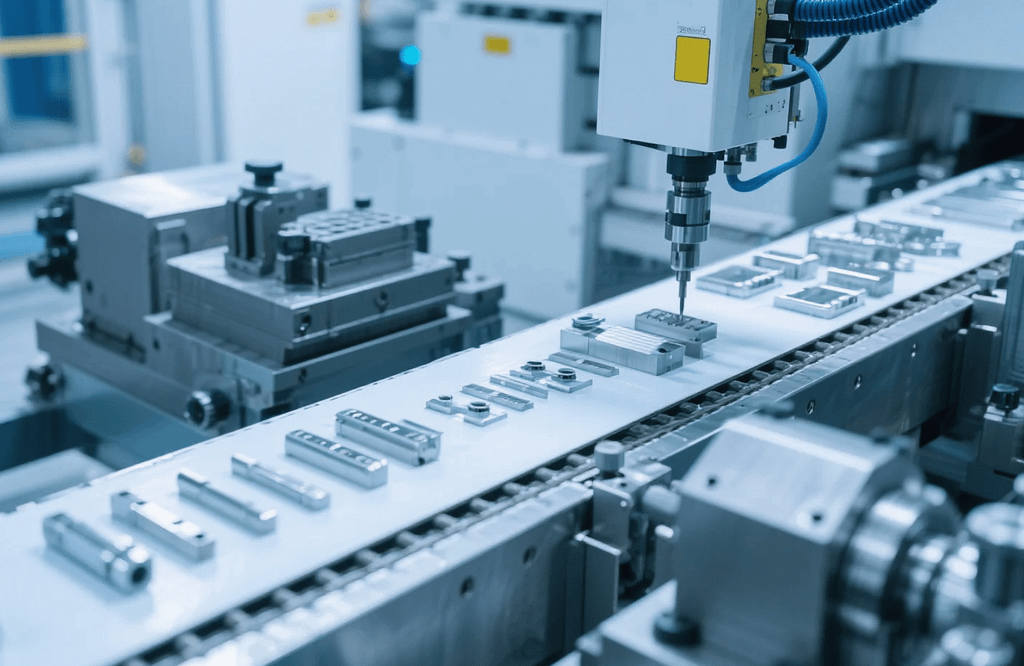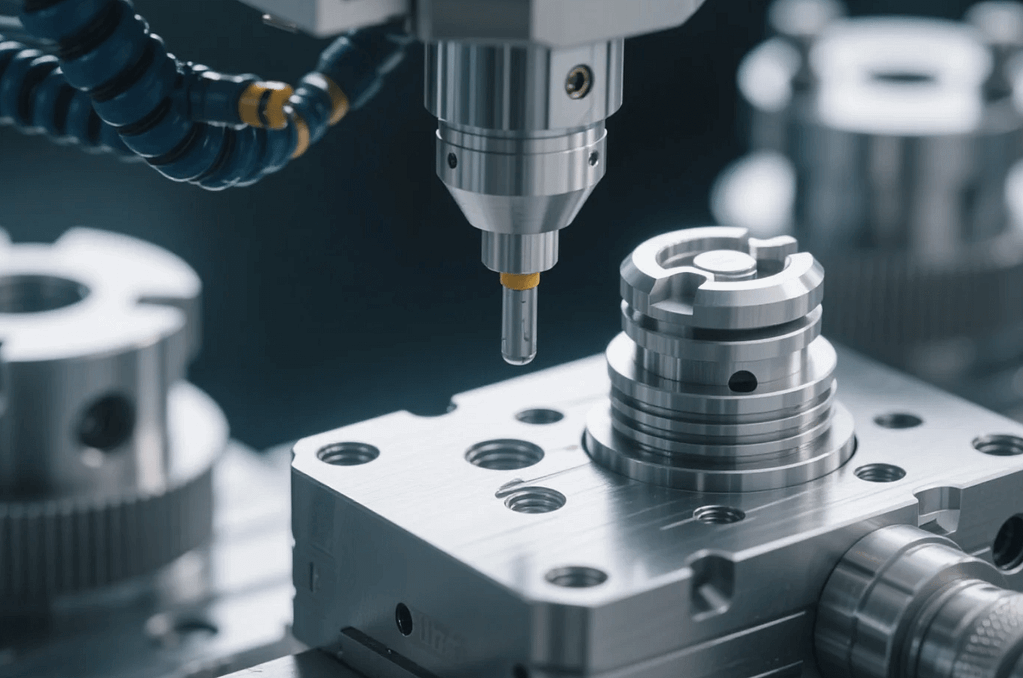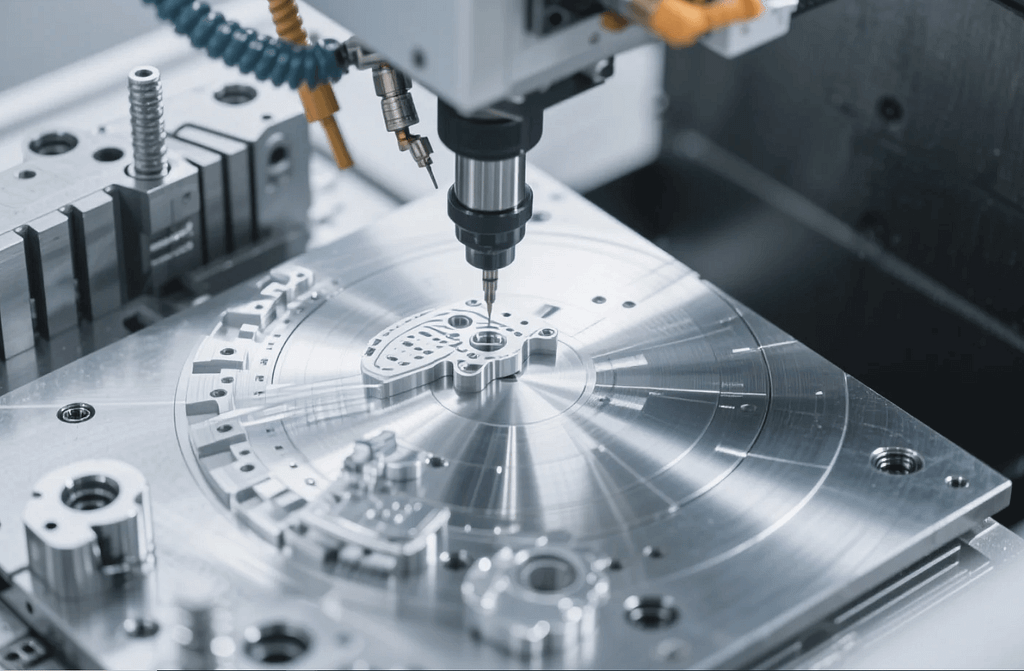In the critical realm of healthcare, where the difference between success and failure can be measured in microns, the demand for exceptionally accurate and reliable components is absolute. The precision manufacturing industry, particularly the application of CNC machining for medical devices, has emerged as an indispensable cornerstone of modern medicine. This advanced technology ensures that instruments, implants, and diagnostic equipment not only meet stringent regulatory standards but, more importantly, function flawlessly to improve patient outcomes and quality of life. For professionals seeking reliable precision manufacturing services, understanding the essential role of this technology is paramount.
CNC machining for medical devices utilizes computer numerical control to automate the fabrication process, producing parts with unmatched consistency and tolerance control. This capability is not merely an advantage; it is a fundamental requirement when components must interface with the human body or execute life-saving functions. Therefore, choosing a manufacturing partner with profound expertise in this specialized field is a critical decision for medical device companies.
The Unwavering Demand for Precision in Healthcare Manufacturing

The medical industry operates under a zero-tolerance policy for error, which profoundly dictates the manufacturing processes employed. Components used in surgical settings, implantable devices, or high-tech diagnostic systems necessitate complex geometries, extremely tight tolerances, and superior surface finishes. It is precisely in this demanding environment that modern CNC technology truly excels.
A key factor driving the reliance on CNC machining for medical devices is the need for dimensional accuracy. Devices like orthopedic implants (e.g., knee or hip replacements) must perfectly match a patient’s unique anatomy to ensure proper fit, stability, and long-term functionality. Consequently, a multi-axis CNC machine can process highly complex shapes and contours that would be impossible or prohibitively expensive to achieve using conventional methods. For instance, high-precision Swiss-type turning machines are frequently employed to produce tiny, intricate parts such as bone screws or internal components for pacemakers, where tolerances can be as minute as $\pm 0.0005$ inches. The repeatability offered by the automated CNC process, furthermore, guarantees that every part in a large production run maintains the identical level of quality and precision, a crucial element for regulatory compliance and batch consistency.
CNC Machining for Medical Devices: Material Versatility and Biocompatibility

A critical consideration in medical device manufacturing involves the materials used. They must be biocompatible, meaning they will not cause adverse reactions within the human body, and simultaneously possess the necessary strength, corrosion resistance, and longevity. CNC machining for medical devices is uniquely suited to handle the specialized, challenging materials commonly required, including:
- Titanium and Titanium Alloys: Renowned for their high strength-to-weight ratio and exceptional biocompatibility, these materials are the standard for orthopedic and dental implants. Nevertheless, machining titanium is difficult due to its hardness and poor heat dissipation, thus necessitating advanced CNC tooling and optimized cutting strategies.
- Stainless Steel (e.g., 304 and 316L): This is widely used for surgical instruments and device housings due to its corrosion resistance and ease of sterilization. Furthermore, the consistent finish achieved through CNC milling and turning is vital for maintaining the instrument’s integrity after repeated sterilization cycles.
- PEEK (Polyether Ether Ketone): As a high-performance medical-grade polymer, PEEK offers excellent chemical resistance and mechanical properties, often serving as a lighter alternative to metal for spinal implants and specialized instruments. Consequently, specialized CNC techniques are used to prevent melting or warping during the machining of these advanced plastics.
Therefore, the ability of CNC systems to process these diverse, tough, and sensitive materials while adhering to strict cleanliness and finish requirements underscores the value proposition for precision manufacturers.
Core Applications: Where Precision is Non-Negotiable

The versatility of CNC machining for medical devices spans the entire spectrum of healthcare technology. Let us consider some of the key applications that rely heavily on this manufacturing method:
Custom and Standard Implants
Implants are arguably the most sensitive category of medical devices. For example, in orthopedic surgery, customized components are becoming the norm. Patient-specific data, frequently acquired from MRI or CT scans, is fed into the CNC system. This enables the machine to produce an implant or prosthetic component that is perfectly contoured to the patient’s unique anatomy, leading to faster recovery and superior clinical outcomes. In addition, the smooth surface finishes achieved through CNC polishing are essential for minimizing friction and wear, particularly in load-bearing joint replacements.
Surgical Instruments and Tools
The reliability of a surgeon’s instrument is non-negotiable. Scalpels, forceps, clamps, and endoscopic instruments require precise geometries to function correctly and ergonomically. Hence, CNC milling and grinding are utilized to create sharp, flawlessly balanced instruments, often featuring intricate locking mechanisms and fine, detailed tips. The longevity and safety of these tools are directly tied to the manufacturing precision.
Diagnostic and Therapeutic Equipment Components
Beyond direct patient contact, CNC machining is crucial for components within large medical systems, such as MRI, CT scanners, and X-ray machines. These systems require high-precision structural parts, enclosures, and internal mechanics to ensure accurate readings and stable operation. Ultimately, the accuracy of these internal components directly impacts the reliability and efficacy of the diagnostic results provided to the medical team.
Partnering for Success: The Manufacturer’s Role
For medical device companies, selecting the right precision manufacturing partner is an act of risk mitigation and quality assurance. A dependable partner must offer more than just advanced machinery. They need to demonstrate a deep commitment to the strict regulatory framework, including ISO 13485 compliance (specific to medical devices), robust quality management systems (QMS), and comprehensive material traceability.
At Captec Precision, the focus is on providing end-to-end solutions that encompass design consultation, material selection, precision CNC machining for medical devices (including multi-axis milling and turning), and thorough inspection. The manufacturing process involves constant monitoring and verification, ensuring that every component not only meets but often exceeds the required tight tolerances and complex surface finish specifications. Therefore, by leveraging state-of-the-art technology and specialized engineering expertise, a precision manufacturer becomes a true extension of the medical device design team, dedicated to the highest standards of quality, safety, and reliability. This collaborative approach fosters innovation and streamlines the journey from prototype to high-volume production.
Conclusion: Driving the Future of Healthcare
The role of precision CNC machining for medical devices is clearly definitive and non-negotiable within the modern medical landscape. This technology is the engine that transforms conceptual designs into tangible components capable of saving and improving lives. For industry leaders, investing in partners like Captec Precision who specialize in this demanding field is an investment in the future of patient safety and superior clinical performance. The marriage of advanced engineering and stringent quality control systems ensures that the devices used globally are built on a foundation of absolute precision and reliability.
Frequently Asked Questions (FAQ)
Q1: What unique quality standards apply to CNC machining for medical devices?
A: The medical industry adheres to some of the world’s strictest quality standards. Key standards include ISO 13485 (Quality Management Systems for Medical Devices) and regulatory requirements from bodies like the FDA. Manufacturers must maintain material traceability, rigorous documentation, tight tolerance control, and often specific requirements for surface finishes to ensure biocompatibility and sterilization compatibility.
Q2: Why are multi-axis CNC machines (4- and 5-axis) commonly used for medical parts?
A: Multi-axis machines are crucial because many medical components, especially implants and surgical tools, feature complex, organic geometries that cannot be completed in a single setup on simpler machines. Using multi-axis technology allows for highly intricate cuts, reduces the need for multiple setups (thus minimizing human error), and helps achieve better surface finishes, which is vital for patient comfort and reduced wear.
Q3: How does precision Usinage CNC contribute to customization in medical devices?
A: Usinage CNC is inherently program-driven, making it ideal for rapid design changes and one-off parts. Patient-specific data (e.g., bone size, geometry) can be converted directly into the machine’s programming (CAD/CAM), enabling the swift and precise manufacture of custom orthopedic implants, prosthetics, and dental devices that are perfectly tailored to an individual’s anatomy.